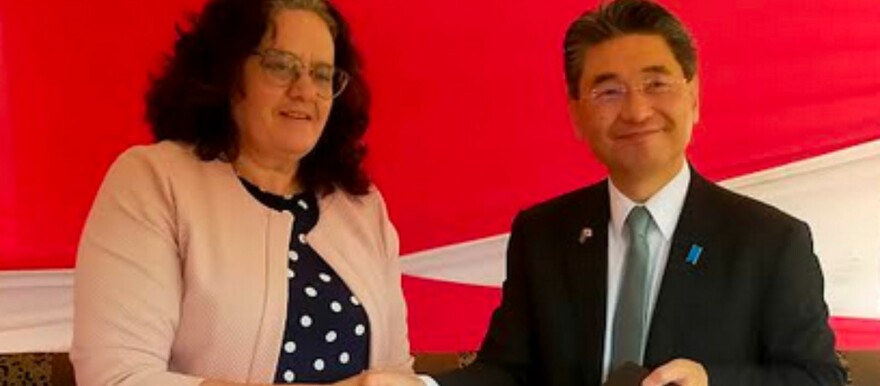The Government of Japan and the World Food Program (WFP) have signed a USD 3.7 million agreement to provide life-saving emergency food assistance and to feed learners in schools in South Sudan.
Speaking during the signing ceremony in Juba on Tuesday, Naohiro Tsutsumi, Japan’s ambassador to South Sudan, said through the program, about 1,600 metric tons of Japanese rice valued at USD 3.4 million will be provided to 52,000 South Sudanese to fight food insecurity.
“This food assistance is aimed at mitigating South Sudan’s food insecurity and malnutrition driven by the influx of vulnerable refugees and returnees fleeing from conflict in Sudan as well as the already existing subnational violence, severer flooding, and increase in fuel and food prices,” he said. “School feeding is very effective in promoting child health and education not only will support children attain better nutrition but will also become an incentive for children to attend school for better school performance.”
“With an empty stomach, students will not be able to concentrate on their work in class,” Amb. Tsutsumi added.
For her part, Ellen McGroarty, the WFP Country Representative in South Sudan, said the project will go towards the School Meals Program in 1,500 schools across the country targeting over 400,000 students.
“This particular contribution will help us with 52,000 people. We will get the rice from Japan and bring it to the schools then the Parents Teachers Association within the schools contribute to the efforts of cooking hot meals for the children on a daily basis,” she said. “We still have shortfalls in funding. We all know that education is a big game changer for the country, such a priority, and it is heartbreaking to have shortfalls. We were hoping to reach over 600,000 children but we are only able to reach over 400,000.”
“We will continue to advocate for the resources to come in for School Meals Program,” McGroarty added.
Meanwhile, Martin Tako Moyi, the deputy minister of general education and Instruction, said the support from the Japanese government comes at a time when the country is grappling with the influx of refugees and returnees from Sudan.
“We are faced with a very huge problem. South Sudanese who were in neighboring Sudan are coming back with millions of children and to make the situation worse, we have thousands of Sudanese refugees crossing the border every day,” he said. “We need to address the education aspect of that situation. Our official language here is English as a language of instruction and there is Arabic and it is very difficult for us to get the teachers in the north to come to South Sudan.”




